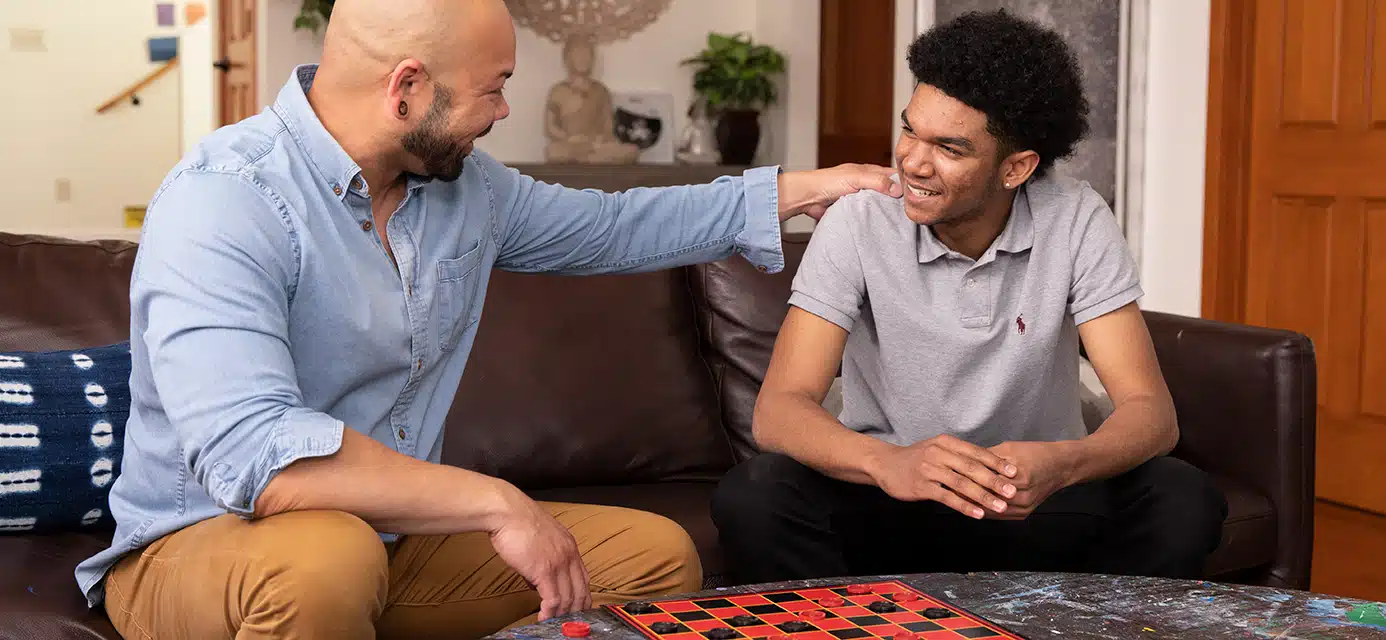Teen Mental Health Treatment Programs
Newport Academy, a different kind of teen mental health & rehab program, nurtures the physical, psychological, social, educational, and spiritual needs of adolescents and their families from a foundation of compassionate care, clinical expertise, and unconditional love.
Residential Treatment Programs for Teens
Newport Academy programs provide a loving environment for teens and young adults to recover from drug abuse and mental health struggles in a safe, supportive, home-like setting. Research finds that gender-specific residential environments provide the most effective treatment for mental health, depression, anxiety, and substance abuse. Each patient’s individualized residential treatment program incorporates evidence-based clinical, experiential, and academic elements. We reveal and heal underlying issues that cause self-destructive behaviors. With a staff-to-resident ratio of 5:1, we provide each teen and young adult with the utmost support and guidance to gain lifelong skills for true happiness and health.


Outpatient Substance Abuse and Mental Health Programs
The Newport Academy outpatient programs for teenagers and young adults provide a nurturing environment that supports mental health and the development of life skills, long-term recovery, and self-esteem. We treat teens and young adults aged 12–27 who are in recovery from substance abuse, mental health challenges, trauma, behavioral/social issues, anxiety, depression, and eating disorders. Patients and families enrolled in the outpatient mental health programs have access to addiction and behavioral health treatment specialists who work together to tailor treatment to reach individualized goals. We pair clinical programs with unconditional love and support as the core of the treatment model.
Continuing Care
Newport Academy’s Continuing Care program offers an ongoing, comprehensive support system to help teens, young adults, and their families continue their recovery journey. Our unique approach and technology-enabled services empower teens and young adults to reach their full potential in life while building relationships based on trust. Through text and live video sessions from the comfort of your home or workplace—via your laptop, tablet, or smartphone—plus in-home visits, our parent coaches and teen mentors work closely with teens, young adults, and their families. The entire family receives expert guidance and aftercare support on what we know can be an uncertain road ahead.

Attachment-Based Therapy
Interpersonal relationships within the family system profoundly affect adolescent well-being. When those relationships are damaged, teens and young adults suffer—as does the entire family. Attachment-Based Family Therapy (ABFT) is an evidence-based approach for treating depression and anxiety in adolescents by repairing damage in the family system and rebuilding trust within the parent-child relationship.
Every therapist at Newport Academy mental health treatment centers is trained in Attachment-Based Family Therapy. In one of their most significant collaborations to date, Guy S. Diamond, Gary M. Diamond, and Suzanne A. Levy—who defined the parameters of ABFT—have worked closely with our clinical staff to integrate this model into all aspects of our treatment approach.






